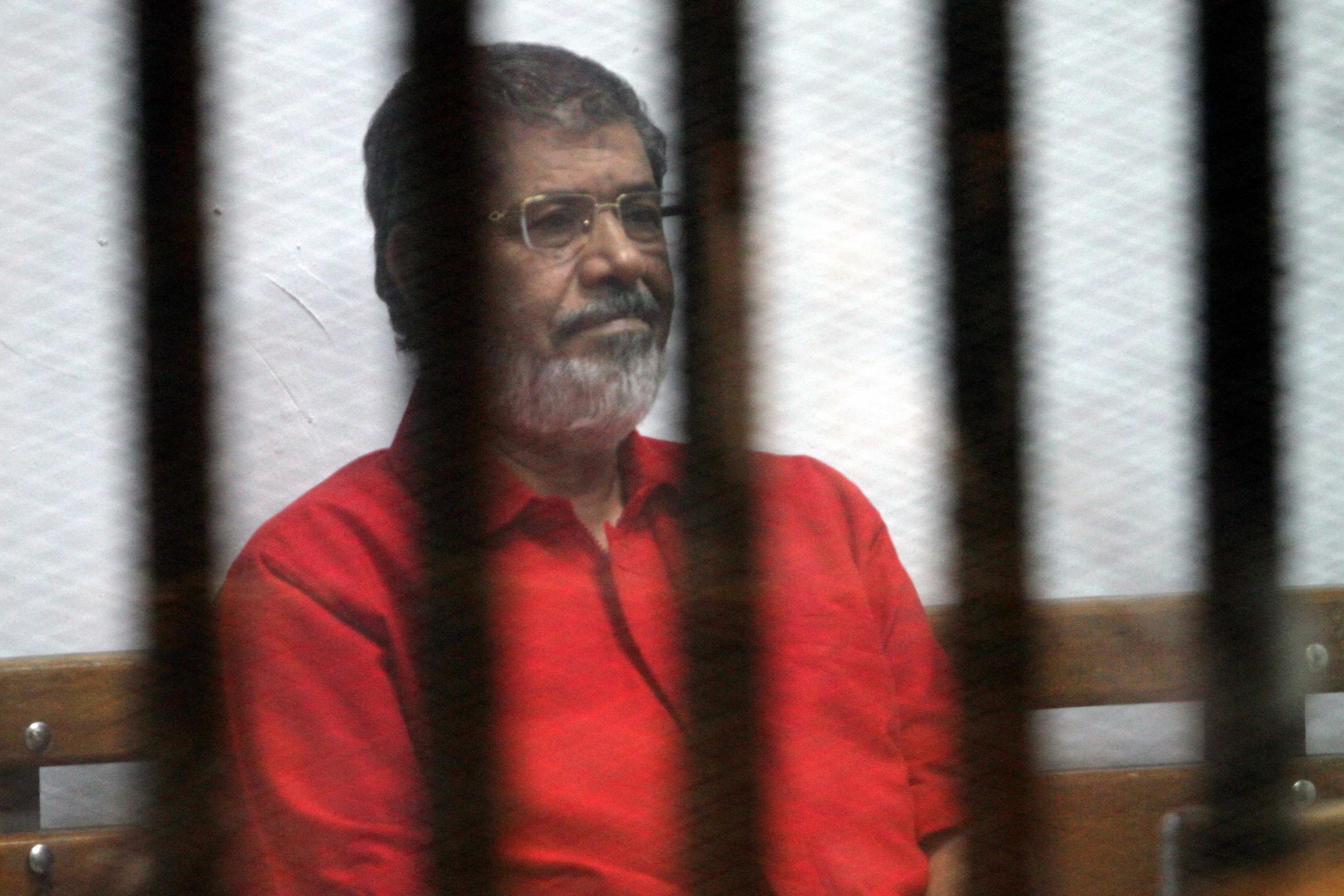‘Sent from Samsung device’: Egyptian news anchor reads government script a little too closely after Morsi’s death
‘We have witnessed the government escalating the use of the term ‘fake news’ to describe any critical coverage of the government and the army, and a long list of banned topics’
Your support helps us to tell the story
From reproductive rights to climate change to Big Tech, The Independent is on the ground when the story is developing. Whether it's investigating the financials of Elon Musk's pro-Trump PAC or producing our latest documentary, 'The A Word', which shines a light on the American women fighting for reproductive rights, we know how important it is to parse out the facts from the messaging.
At such a critical moment in US history, we need reporters on the ground. Your donation allows us to keep sending journalists to speak to both sides of the story.
The Independent is trusted by Americans across the entire political spectrum. And unlike many other quality news outlets, we choose not to lock Americans out of our reporting and analysis with paywalls. We believe quality journalism should be available to everyone, paid for by those who can afford it.
Your support makes all the difference.In the wake of former Egyptian president Mohamed Morsi’s death this week, the country’s tightly controlled media all seemed to be reading from the same page – quite literally.
Egypt is one of the world’s worst jailers of journalists and free expression is virtually non-existent. The extent of that control has been on full display in the last few days.
The country’s first democratically elected president, Morsi was deposed in a coup led by Egypt’s current leader in 2013 and has been in jail ever since. He was reportedly denied medical treatment while in detention, a factor which likely contributed to his death in a Cairo courtroom on Monday.
The following day, Morsi’s demise was covered by most Egyptian newspapers with the exact same 42-word article buried on the inside pages. According to Mada Masr, one of the few independent media outlets in the country, the text of the article was sent to news editors by the government over WhatsApp with instructions to keep the story off the front page.
Mada Masr added that this practice was “increasingly used by authorities to dictate press coverage”. The instructions were followed by both state-owned and private newspapers. Only one newspaper ran the story on its front page, and mentioned that Morsi was a former president.
News anchors were also apparently given a script, something revealed when one anchor read the words “sent from Samsung device” at the end of her report.
The video was shared widely on social media on Tuesday, with many pointing to it as a further sign of the government’s grip on the press.
“It’s not a surprise that all state media have followed the government line so closely, it has been happening for the past few years, certainly since 2013,” said Sherif Mansour, Middle East and North Africa programme coordinator for the Committee to Protect Journalists.
“We have witnessed the government escalating the use of the term ‘fake news’ to describe any critical coverage of the government and the army, and a long list of banned topics. It has been a progression that has taken place over the course of five years,” he added.
Press freedom groups say the situation for journalists in Egypt has grown progressively worse under the current president, Abdel Fattah al-Sisi, who seized power from former Muslim Brotherhood leader Morsi.
“The authorities have waged a witch-hunt since 2013 against journalists suspected of supporting the Muslim Brotherhood and have orchestrated a ‘Sisification’ of the media,” Reporters Without Borders said in its country report.
“The internet is the only place left where independently reported information can circulate, but more than 500 websites have been blocked since the summer of 2017 and more are more people are being arrested because of their social network posts,” it added.

A former general in the Egyptian army, Mr Sisi was appointed defence minister in 2012 by the then president, Morsi, who came to power following a popular uprising against long-time leader Hosni Mubarak.
Morsi’s rule was short-lived, however. Amid widespread dissatisfaction over his rule, Mr Sisi led a military coup against the president and was blamed for the massacre of nearly 1,000 Muslim Brotherhood supporters who protested the coup.
Since then he has ruled with an iron fist and cast himself as a paternal ruler in the mould of Mubarak. Amnesty International has described Mr Sisi’s crackdown as “unparalleled in Egypt’s recent history”.

Join our commenting forum
Join thought-provoking conversations, follow other Independent readers and see their replies
Comments